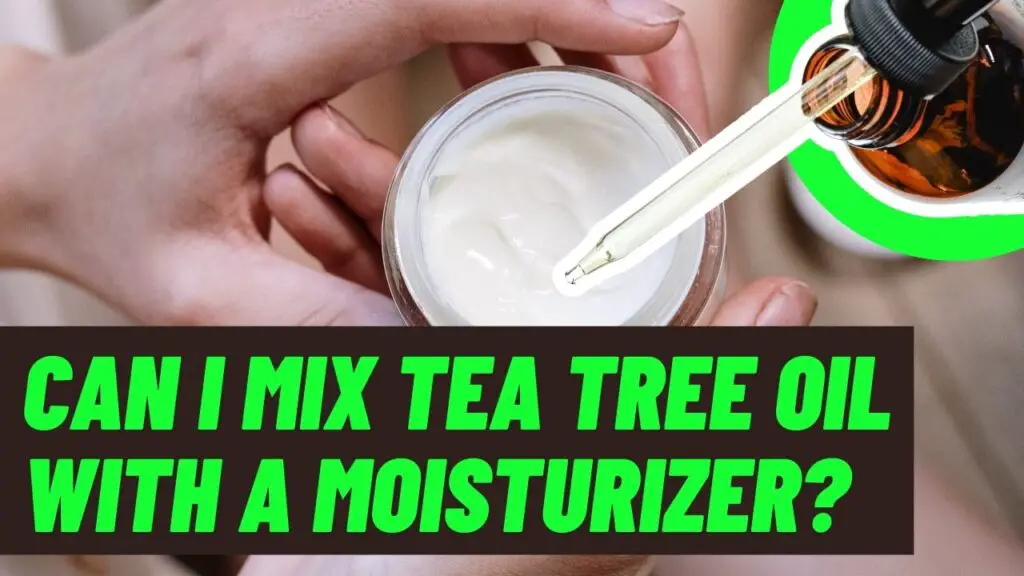Using a moisturizer can help keep your skin hydrated, and treat dry skin and eczema. Tea tree oil has also been found to be an effective dry skin and eczema treatment, and can be combined with a moisturizer and applied to your skin, hands, feet, or other affected areas.
Studies have found that tea tree oil is more effective than clobetasone butyrate and zinc oxide, two ingredients that are commonly used in commercial eczema creams.
Do you put tea tree oil before or after moisturizer?
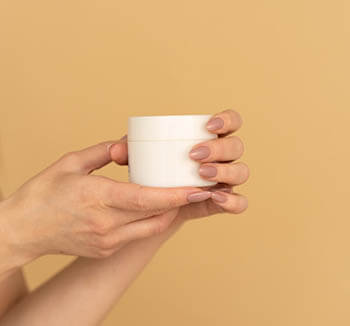
If you’re using tea tree oil during moisturizing, it doesn’t make much difference whether you apply it beforehand or afterward. What is important, however, is that you dilute tea tree oil with a carrier oil before applying it directly to your skin.
It might make more sense to simply add tea tree oil to your moisturizer cream itself. You will only need around 3 to 5 drops of oil for a bottle of moisturizer. Mix well before use to make sure the oil is properly incorporated throughout the cream.
Is mixing tea tree oil with moisturizer effective against pimples?
As a natural antiseptic, tea tree oil can be an effective treatment option for oily, acne-prone skin. Adding tea tree oil to your moisturizer may help breakouts and reduce redness and inflammation.
However, the studies into tea tree oil as a pimple treatment are limited. Tea tree oil has been found to reduce the amount of oil and bacteria on the skin, which could reduce acne. Research generally shows that tea tree oil can help prevent pimples when used properly as a daily skin treatment, but it’s not a cure-all.
How do I incorporate tea tree oil into my skincare routine?
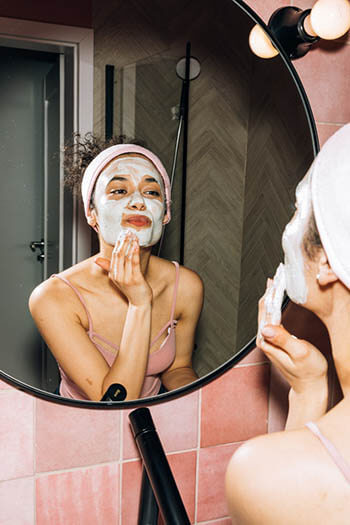
The most popular use of tea tree oil is as a moisturizing facial oil. Combine tea tree oil with a carrier oil, such as rosehip oil or argan oil for dry skin, or jojoba oil for oily skin. Apply this solution to your face twice daily, rinsing with water after. You can also add tea tree oil to your moisturizing lotion and apply to your face according to the instructions on the bottle.
As with the majority of skincare remedies, it’s not a case of “the more, the better” with tea tree oil. Stick to using it twice a day – any more than that and you might end up damaging your skin.
What happens if you apply tea tree oil directly to skin?
If you’ve never used tea tree oil before, you might assume that it’s fine to apply it directly to your skin. But this can actually be very dangerous.
Tea tree oil is a potent, aggressive oil, and it needs to be diluted with oil before applying to your skin. If not diluted, tea tree oil could cause your skin to become inflamed and break out into a rash. This could also happen if you use water to dilute tea tree oil instead of a carrier oil, as it’s very difficult to properly combine oil and water.
Can tea tree oil remove dark spots?
One of the best uses of tea tree oil is to prevent dark spots. Dark spots are caused by an overproduction of melanin in the skin. Also known as hyperpigmentation or age spots, dark spots may be light or dark brown in colour. They’re caused by acne scarring, hormonal changes, aging, and sun exposure.
There are some claims that tea tree oil can fade or clear existing dark spots, but there isn’t enough scientific evidence to confirm this. What we do know is that in certain scenarios, tea tree oil can reduce the risk of dark spots forming. For instance, it can help heal acne and reduce the risk of scarring, but if you have existing acne scars, it’s unlikely to make a difference to those.
Can I leave tea tree oil on my face overnight?
When the treatment calls for it, you can leave tea tree oil on your face overnight. It’s particularly common to do this if you’re using tea tree oil to treat acne.
After mixing tea tree oil with a carrier oil, dab onto your face and leave overnight. This will allow the oil to properly absorb into your skin, helping to reduce redness, inflammation and swelling. The next morning, rinse your face and gently pat dry with a facecloth.
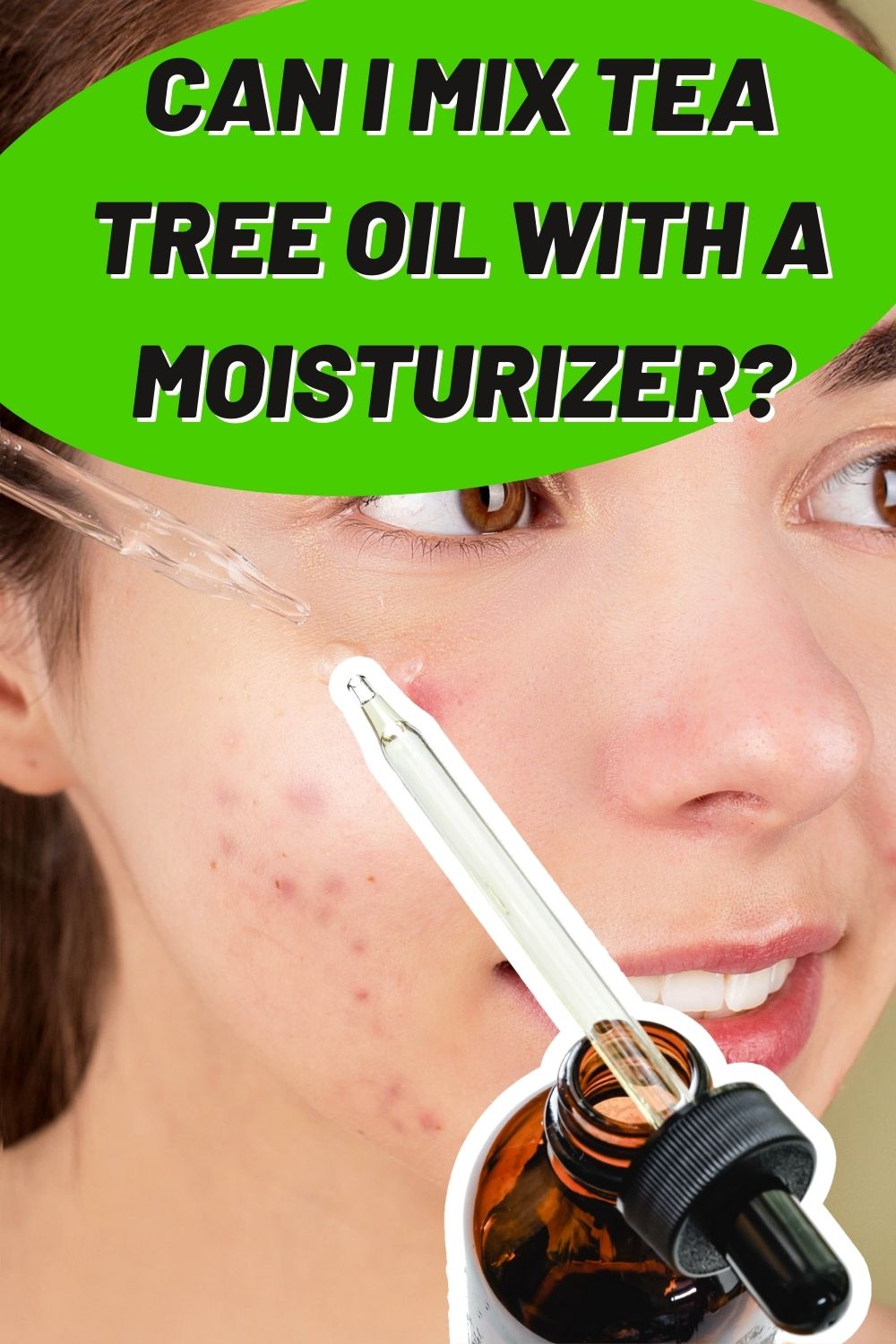
Can I put tea tree oil on a popped pimple?
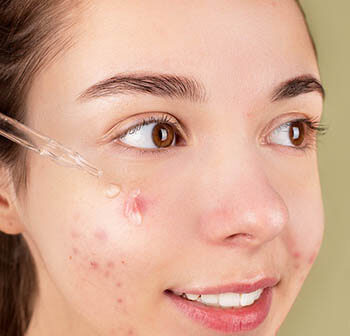
We know that tea tree oil is an effective acne treatment, but should you use it on a sore pimple that you’ve just popped?
It’s not recommended to use tea tree oil on pimples that are especially sore or inflamed. While tea tree oil can fight bacteria and reduce inflammation, it may be too painful to add it straight onto your skin after popping a pimple.
In fact, it’s best not to add anything to your skin immediately after you’ve popped a pimple. It can be tempting to want to remedy the problem straight away, but waiting several hours for the pain to fade is the smart option.
Will tea tree oil clog my pores?
Applying diluted tea tree oil to your face will clog your pores. It’s not actually the tea tree oil that causes the biggest clogging issue, though; it’s the carrier oil that you use with it.
Blocked pores can increase your likelihood for acne breakouts. If you want to avoid blocking your pores but still want to add tea tree oil to your skincare routine, mix the oil with your moisturizer instead.
Which tea tree oil is best for face?
There are many different brands of tea tree oil out there, and some are better than others. It’s wise to research your options and spend some time looking at customer reviews before you make a decision for you.
In any case, if you’re using tea tree oil on your face, it’s best to look for a 100% tea tree oil product. This will ensure that the solution contains only tea tree oil, and no potentially harmful carrier oils or preservatives.
Can I put tea tree oil all over my face?
You can use tea tree anywhere on your face, but take care not to apply it near your eyes, mouth or nose. It’s also wise to do a patch test on the inside of your wrist before using tea tree oil for the first time, or before using a new brand of tea tree oil. If you develop skin irritation or a similar reaction on the patch test area, you know not to apply the oil to your face.
Can we mix tea tree oil with aloe vera gel?
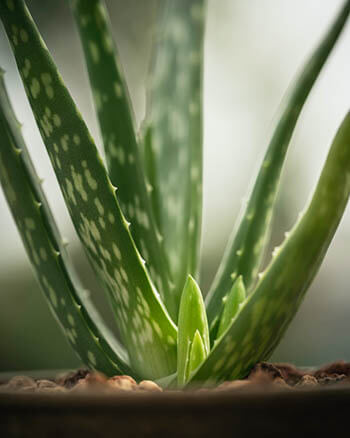
If you don’t want to dilute tea tree oil in a carrier oil or put it in your moisturizer, an alternative option is to mix it with aloe vera gel.
There are plenty of benefits of combining tea tree oil with aloe gel. Aloe vera is anti-inflammatory and soothes the skin, so it can boost the effectiveness of tea tree oil as a dry skin or acne treatment. Both aloe vera gel and tea tree oil can be effective in treating dark spots.
You can buy aloe vera gel from your local supermarket or health store, but this will likely contain artificial preservatives and cost more than owning an aloe plant. With your own aloe vera plant, you can extract pure, 100% aloe vera gel of a much higher quality.
What should I apply after tea tree oil?
You should try to make tea tree oil the very last ingredient in your skincare routine. This is because products applied afterward may move around on the oil and won’t be properly absorbed into your skin.
It’s best not to apply anything after tea tree oil for at least 2-3 hours – and you should wash the oil off your face before you do so. Most people apply tea tree oil before bed, then wash the oil off the next morning and apply a fresh batch of skincare products.

